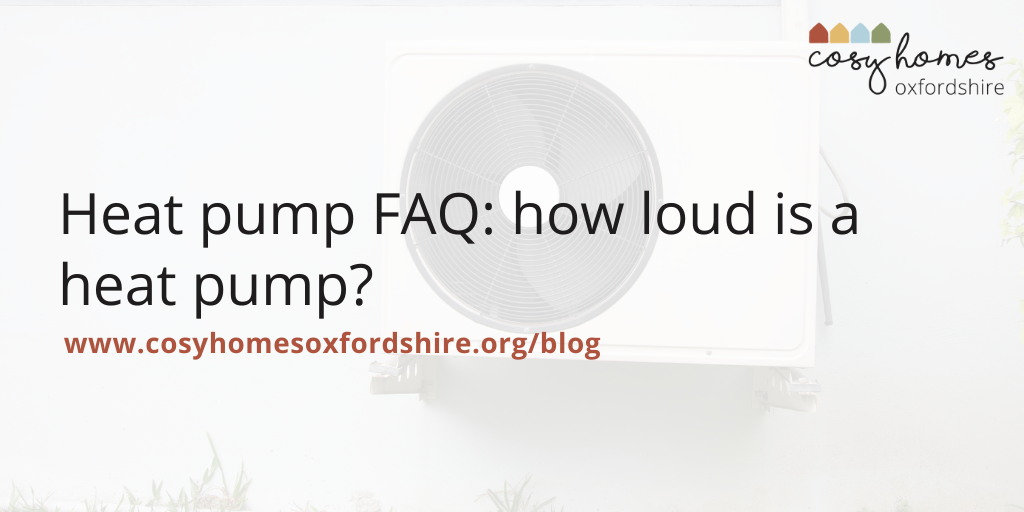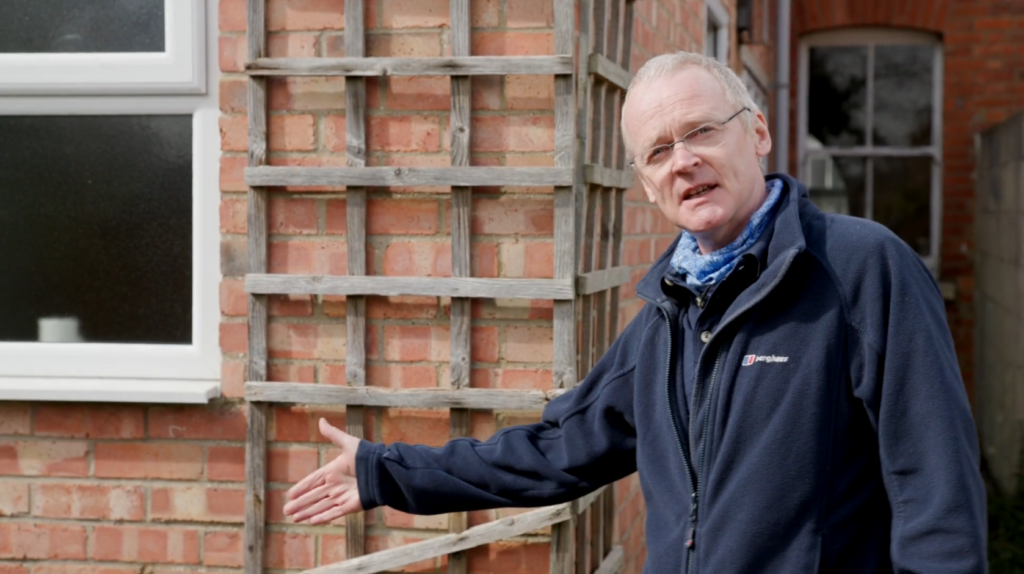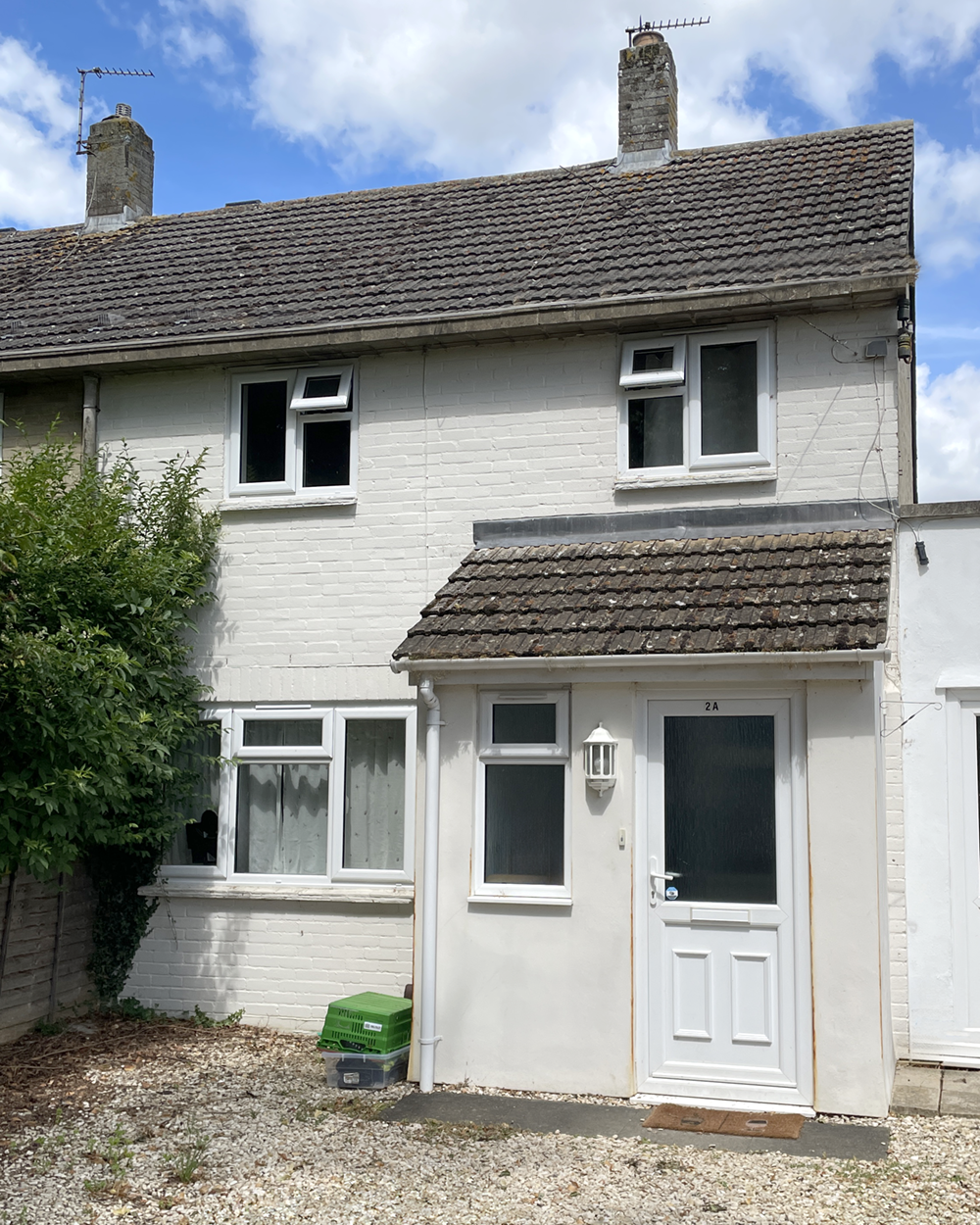Heat pump FAQ: How loud is a heat pump?
Like many householders in the UK, you may be looking into a heat pump as a new method to heat your home, but how loud is a heat pump compared to your current heating system? Read on to find out more.
Many residents ask us about the sound level of a heat pump, with genuine concerns about the type of sound it will make and how loud it will be.
Our team has been asked by residents about sound level, with some even concerned a device may disturb neighbours, however, there’s little need to be concerned about the sound they produce – here’s why.

All heating devices make some noise, but heat pumps are usually quieter than fossil fuel boilers.
A ground source heat pump has a maximum level of 42 decibels. This is similar to a typical domestic refrigerator.
“The concept of Air Source Heat Pumps may seem strange to us, but actually in all our homes we have fridges, and it’s very much like a fridge working back to front.”
Geordie Stewart, Retrofit Scheme Manager

Air source heat pumps operate at around 40 decibels and can get to 60 decibels if they are working very hard. This is about the same level as an air conditioning unit or a babbling brook outside your home and, if you live near a road, this is quieter than light traffic noise.
Air source heat pumps use fans to take in air to use its natural warmth, which does create some sound. This noise is outside your home, and usually, you won’t hear anything from inside and neither will your neighbours.
There are many good videos available on YouTube to give you an idea of the sound level of heat pumps. Why not have a listen to a few heat pumps in action to see what you think?
Thinking about installing a heat pump?
Heat pumps can work at an efficiency level of up to three times higher than a gas boiler, being more efficient and using clean energy sources means they can be a more environmentally friendly option for heating your home.
It’s important to note, that you may need to consider other upgrades to the fabric of your home when installing a heat pump.
For those thinking of switching to a heat pump, improving the fabric of your home – including insulation and improved window glazing – first is important to ensure you’re getting the most out of that new technology. These improvements also go a long way to improving the comfort and overall health of our homes.
Always make sure you’re working with a trusted MCS certified heat pump installer (like those we work with at Cosy Homes Oxfordshire) as they’ll be able to accurately determine the size of heat pump you need.
If you choose to use the Cosy Homes Oxfordshire service, we can help you with this as we have access to a pool of trusted installers and contractors.
With around 20% of all UK carbon emissions coming from our homes, upgrading to a low carbon heating system alongside measures to reduce heat loss is essential to address climate change.
How can I find out more?
You can watch our webinar on air source and ground source heat pumps, or visit our resources page to find out more about retrofit.
If you’d like to find out more about how Cosy Homes can support you in making your home more energy efficient, healthier, and cosier register today with our Plan Builder.
Read next…

Cosy Homes Oxfordshire features in The Sunday Times
You might have seen our scheme featured alongside some of our clients in ‘The Ultimate Guide To Insulation’ in The Sunday Times on the 15th of January, and also available online. Thank you to everyone who participated in the piece, including our
Energy-efficiency in Eynsham
A landlord in Eynsham, Oxfordshire, tackled persistent mould in a 1960s rental property. The measures implemented resulted in a higher EPC rating. Discover what he did and the impact it had. The problem This modest 1960s mid-terrace house in Marlborough
Orchard House retrofit
Mary and Philip opted for an assessment, which led to the development of a comprehensive Whole House Plan crafted by a qualified Retrofit Coordinator. This plan outlined all the necessary recommendations, actions, quotes, and
Exploring the pros and cons of your home insulation options
with so many insulation materials out there, how do you choose the right one for your home? Let’s take a quick look at the various types of insulation materials, explore their pros and cons, and help you make an informed
